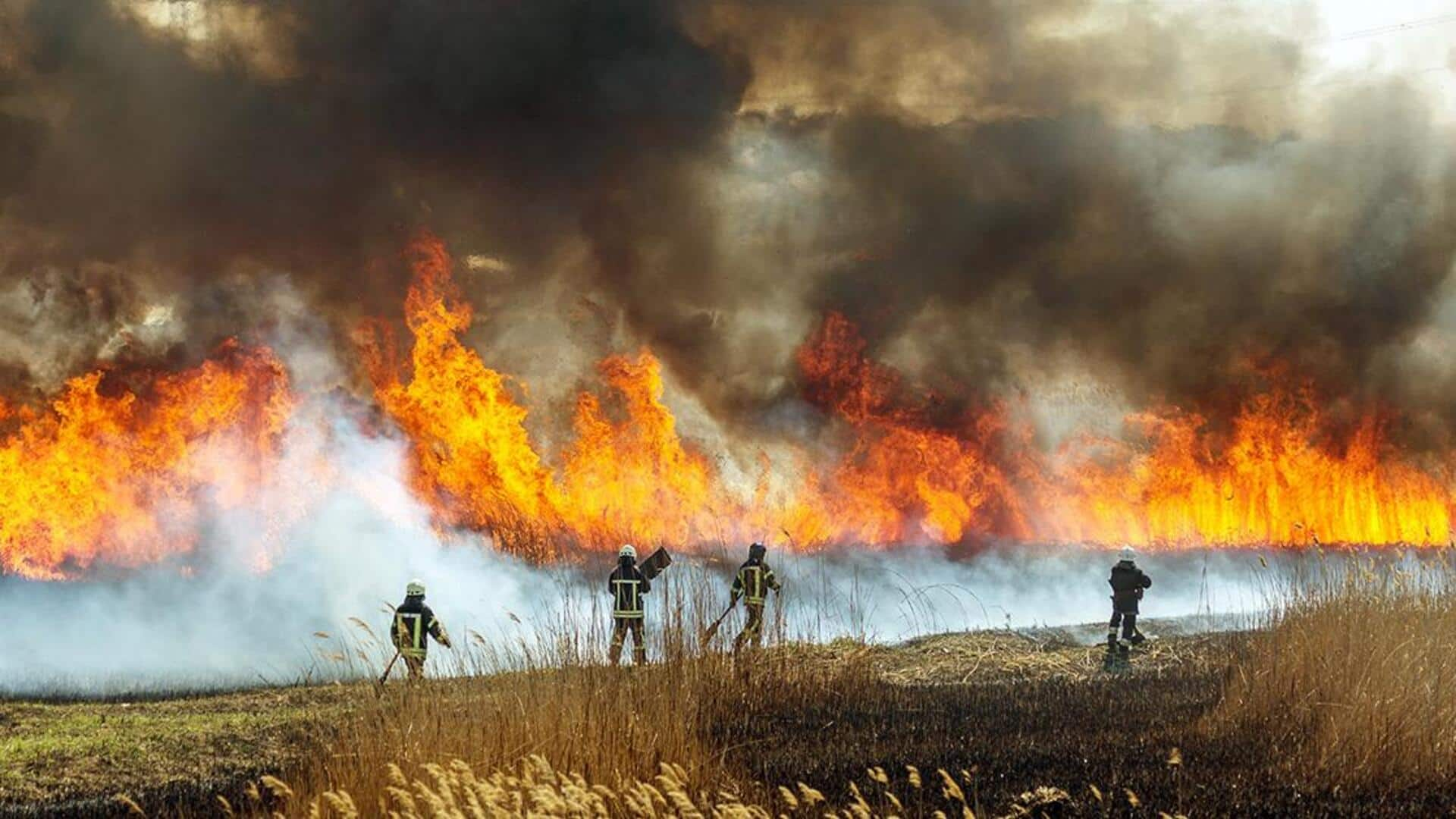
70% of world's population to face 'extreme weather' by 2044
What's the story
A recent study warns that nearly three out of four individuals globally could experience extreme weather changes within next two decades. CICERO's climate scientist Carley Iles and her team states that if current greenhouse gas emission levels persist, it could lead to dangerous climatic changes, affecting 70% of the human population. The researchers' models also indicate that much of the future climate change is already inevitable.
Climate records
Record-breaking temperatures and weather events
Recent data from Europe's climate service Copernicus reveals that Earth experienced its hottest Northern Hemisphere summer on record, surpassing the previous record set just last year. The Southern Hemisphere has also been grappling with an unusually warm winter. These rising global temperatures have led to deadly fires, floods, storms, and droughts that are destroying crops and causing widespread famine.
Health risks
Climate change accelerates spread of diseases
The increase in global temperatures not only impacts agriculture but also creates conditions conducive to the spread of more diseases. Jennifer Francis, a climate scientist at the Woodwell Climate Research Center, likens our growing desensitization to these warning signs to people living in a war zone who become deaf to constant bombing and gunfire sounds. Iles's team projects that weather changes in future will occur even more rapidly than we have seen so far.
Weather concerns
Extreme weather events pose significant risks
The research team warns that society is particularly vulnerable to high rates of change in extremes, primarily when multiple hazards increase simultaneously. They cite the example of a severe heatwave in Pakistan in 2022 that was immediately followed by unprecedented flooding, affecting millions. The team's paper highlights the potential consequences of such events, including heat stress and excess mortality among people and livestock, reduced agricultural yields, and transport disruption due to heatwaves.
Regional impact
Tropics and subtropics to face biggest weather extremes
The study also warns that under our current high emissions trajectory, the tropics and subtropics—home to a significant portion of the human population—will face the most severe weather extremes. Iles emphasizes their focus on regional changes due to their increased relevance to people and ecosystems. However, she also notes that even with drastic emissions cuts, some regions may face more immediate issues as air pollution has masked some effects of global warming.